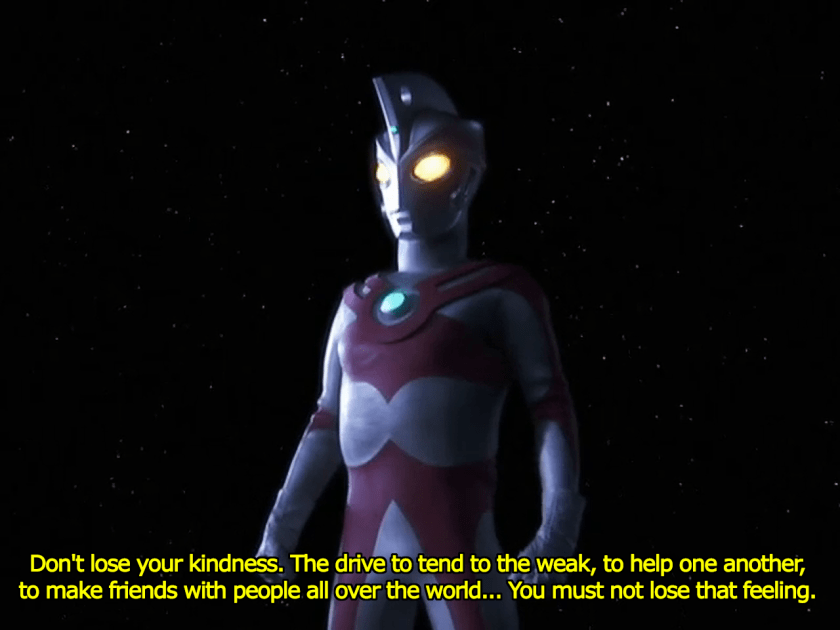Earthbound (of course known in Japan as Mother 2) needs no introduction amongst localization enthusiasts. Prioritizing comedy in its design, it’s no wonder that some Mother 2 gags transformed in localization. NPC dialogue, items, enemies, and more had to be adjusted so their humor would come across for an audience separated by an ocean. What’s more, its voracious fanbase has subjected just about every change to what might be an unparalleled level of scrutiny.

Despite that, a gag that seems to have eluded Westerners is one that was left completely unchanged: Mighty Bear Seven, found in Winters’ Stonehenge area. The ‘Mighty Bear’ part is self-explanatory, but the ‘Seven’ is a bit of a head-scratcher.

The Japanese name of Mighty Bear Seven is かいりきベア・セブン (Kairiki Bea Sebun, Supernaturally Strong Bear Seven), so its localized name is pretty much a literal translation. Mighty Bear Seven is also a stronger palette swap of another enemy, Mighty Bear, who’s merely かいりきベア (Kairiki Bea, Supernaturally Strong Bear) in Japanese. Looks like there’s not much in the way of clues to be found in its cohort’s name.
To understand Mighty Bear Seven’s etymology, we’ll need to look at ANOTHER palette swap: Master Barf, who can be found in Deep Darkness later in the game.

Master Barf’s name is a slight alteration of ‘Master Belch’, a boss fought in Saturn Valley. In fact, Barf claims to be the very same Belch that Ness & co. defeated once before, back for revenge. Small wonder, then, that Belch’s Japanese name ゲップー (Geppū, a portmanteau of the onomatopoeias for burping and farting) became かえってきたゲップー (Kaettekita Geppū) when reprising his role as a thorn in the player’s side.
Kaettekita Geppū is a bit difficult to translate literally. Kaettekita is a past tense-conjugated compound verb comprised of 帰る (kaeru, to return) and 来る (kuru, to come/arrive). Together, they’re something like ‘to come back’, with emphasis on the fact that the return journey is complete. This verb precedes a noun, and imbues that noun with the verb as an attribute. Put another way, Kaettekita Geppū is Geppū-that-has-come-back.



So what’s the connection between Kaettekita Geppū and Kairiki Bea Sebun? None other than the hero who came to Earth from the Land of Light to fight for justice: Ultraman!


The kaettekita in Master Barf’s name is also seen in the 1971 TV series Kaettekita Ultraman (officially localized as Return of Ultraman), which marked Ultraman’s return to television after a 3-year hiatus. The show was so popular, it’s been cited as the main reason kaiju media got its second wind in the 70s.
1971 is a bit before my time, but my understanding is that Kaettekita Ultraman may have been what truly cemented Ultraman’s position as one of humanity’s most beloved protectors alongside Kamen Rider and Godzilla (when the big, scaly lug’s not punishing us for using nuclear power, anyway). After all, almost 40 years before the MCU, it merged all previous entries in the Ultra series into one canonical universe.
While most Westerners’ exposure to Ultraman is probably limited to Shin Ultraman and Okkusenman, its popularity was and is nigh-impossible to overstate in Japan. Consequently, Japanese game developers in the Super Nintendo/Super Famicom era drew a lot of inspiration from 1960s & 70s 特撮 (tokusatsu, media that makes heavy use of special effects). After all, tokusatsu would’ve been especially popular when they were kids. It’s perfectly reasonable that Earthbound‘s director Shigesato Itoi or another staff member named Kaettekita Geppū as an homage to Ultraman.

Still, it’s hardly a smoking gun just because Kaettekita Ultraman united Ultra Q, Ultraman, and Ultraseven under a single banner.
Wait, Ultraseven?
As it turns out, Mighty Bear Seven’s name is also an Ultraman reference, this time to the 1967 series ウルトラセブン (Urutorasebun, Ultraseven). Even if you’ve never heard of Ultraseven before, chances are you’ve seen an anime or played a game that paid homage to his special move, the Eye Slugger. When using it, Ultraseven takes the blade off the top of his helmet and throws it to cut his foes before it returns to him like a boomerang.




Despite Kaettekita Ultraman‘s popularity, Geppū truly has returned, so kaettekita accurately describes him. Perhaps the name is just a happy coincidence, akin to how Wild Guns Reloaded isn’t a reference to The Matrix Reloaded. Still, given that both Mighty Bear Seven and Master Barf are beefed up palette swaps of earlier enemies, and there’s no such plausible alternative for Mighty Bear Seven, it seems likely to me at least that both names really do pay homage to Ultraman.

Know some Earthbound or Ultraman fans who'd get a kick out of this reference? You'll be doing me a big favor if you share this article with them! Or, if you're as lonely as a pile of bones in the desert, consider following me on Twitter!
You’re probably itching to get away from Barf’s horrible stench, so why not learn about JRPG name origins with this interview about Final Fantasy III‘s Onion Knight? Or for something that had to be completely rewritten in localization, how about this 2-parter Matthew wrote about Yakuza 0‘s use of goroawase in its pager codes?
Lastly, before you go, consider following us to keep up-to-date on new articles as soon as they come out. The best place to do that is our Twitter page, where we also post follow-up details that didn’t make the cut for the main article, as well as various localization trivia throughout the week. Alternatively, you can subscribe to our subreddit or the Lost in Localization RSS feed if those are more your speed.

Even if the localizer missed the Ultraman joke, I don’t think “Barf” works in a vacuum. It’s meant to be the same guy, so give him some new honorific or title rather than changing his name.